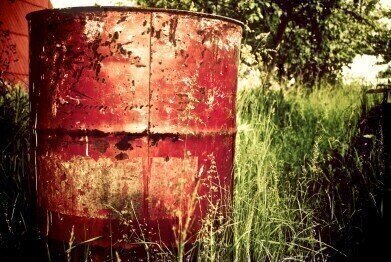Fuel for Thought
What is Waste Oil?
Apr 14 2015
Waste oil is oil that has never been used because it has been compromised, typically through contamination, and is now unsuitable for its original purpose. Examples of waste oil include oil spill clean-up, the bottom sediment of oil tankers after cleanout, and oil that has been contaminated through leaking containers.
Waste oil can either show the addition of impurities, or a loss of original properties. Waste oil can never be used, either through recycling or cleaning.
What is the difference between waste oil and used oil?
Used oil has been used previously, and as a result of that, is now contaminated by impurities, either chemical or physical. Examples of used oil are old transmission oil, motor oil, brake fluid, hydraulic oil and gearbox oil. Used oil is a recyclable commodity, and as such, can be stored for recycling, reuse or disposal. Used oil is not considered to be a waste product. For more information, read: What Is Waste Oil Recycling? And How Can You Get Involved?
Both waste oil and used oil require proper recycling or disposal techniques which are set out by government bodies. This is to avoid illegal dumping and to help protect the environment.
Waste oil and used oil should be labelled clearly on airtight tanks or containers.
Regulations regarding disposal of waste oil and used oil
Used oil falls under ‘regulated waste products’, whereas waste oil is considered to be a hazardous waste. As such, disposing of waste oil has far more legal implications and must be handled in accordance with the Dangerous Waste Regulations.
Most motor garages will have used oil on their premises, as it is a by-product of their services, however, it is unusual to have waste oil onsite. Nearly all plants have used oil, while very few will ever have waste oil.
Waste oil is considered to be a dangerous substance, and requires speedy and proper disposal. Waste oil must be handled using licenced disposal and storage facilities with permitted treatments.
Disposal of waste oil
As waste oil may contain hazardous materials, and could be toxic, it has to be disposed of correctly. Previously, waste oil was dumped in landfills, but after the effects on the environment became apparent, this practise was stopped. Now there are far more regulations regarding the disposal of waste oil.
There are different ways in which waste oil can be disposed of, but there are many restrictions regarding disposal.
Waste oil cannot be discharged into a public sewer, it cannot be tipped into drains or onto land, and you must have a legal licence and a permitted hazardous waste incinerator if you want to burn it.
The best way to dispose of waste oil is to contact a specialist company that deal with proper disposal techniques for hazardous waste. These companies use techniques that do not harm the environment or cause additional pollution that could endanger human health.
Digital Edition
PIN 25.2 Apr/May
May 2024
Safety - Carbon monoxide toxic and flammable gas detection Analytical Instrumentation - Density: A fundamental parameter at critical stages within the petroleum sector - Advancements and...
View all digital editions
Events
May 18 2024 Rio de Janeiro, Brazil
May 19 2024 Minneapolis, MN
May 20 2024 Columbus, OH, USA
May 20 2024 Dubai, United Arab Emirates
May 23 2024 Beijing, China


















